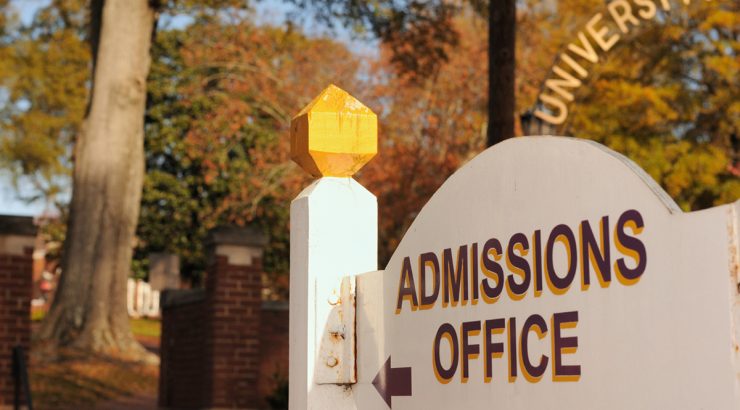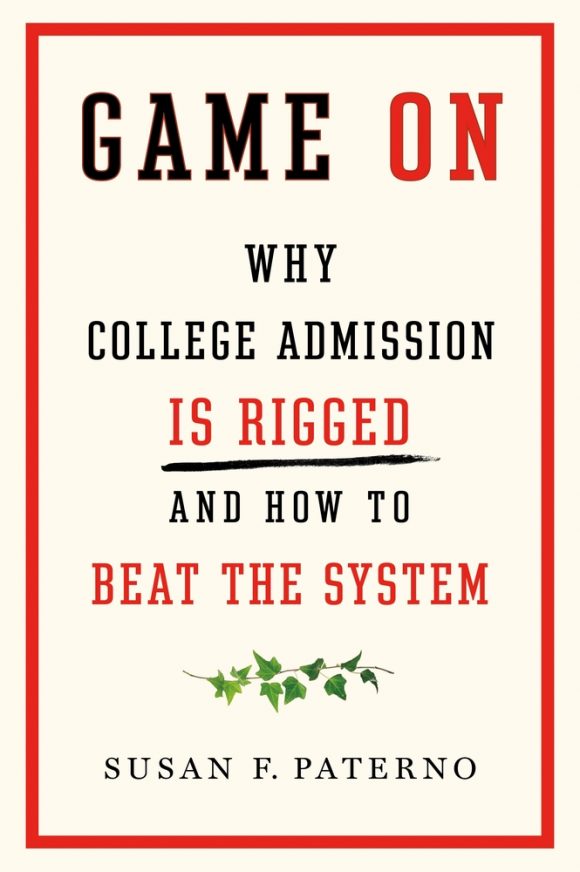
Faculty Books: Game On Why College Admission is Rigged and How to Beat the System
April 28, 2021
 Susan F. Paterno, Professor of English and Director of the Journalism Program, unravels the hunger games of higher education’s opaque rules in her forthcoming book, Game On: Why College Admission is Rigged and How to Beat the System.
Susan F. Paterno, Professor of English and Director of the Journalism Program, unravels the hunger games of higher education’s opaque rules in her forthcoming book, Game On: Why College Admission is Rigged and How to Beat the System.
How is it possible that Harvard is more affordable for most American families than the local state university? That up to half of eligible students receive no financial aid? Why are public universities rejecting homegrown middle-and working-class applicants and instead enrolling wealthy out-of-state students?
Paterno’s book answers these questions and decodes the college admissions industry—the consultants, the tutors, the rankers, and the branding companies hawking “advantage”.
The Voice of Wilkinson sat down with Paterno to have a brief discussion about Game On.
The Voice of Wilkinson: Why the title “Game On”?
Susan Paterno: Getting into college has escalated into what can seem a high-stakes game of emotional and financial survival. Too many families feel battered by forces they think are out of their control.
VoW: What inspired you to write this book?
SP: I tried to write a book I wanted to read when my two youngest children were applying to college. So much about getting into college had changed and so little of it made sense. The confusion is why the media obsess on the anxiety, stress, and feelings of powerlessness that have come to characterize college admissions. I hope to throw the lights on for millions of Americans struggling to find great, affordable degrees that don’t leave them with mountains of debt — and to give them the tools they need to fix a broken system.
VOW: What was one thing (or two) while researching this book that really shocked you?
SP: A misplaced obsession with elite colleges is driving the anxiety and is distracting Americans from confronting the real problem with higher education today. It’s unaffordable. About a dozen colleges out of the nation’s 2,500 degree-granting institutions promise to charge only what families can afford to pay. Those institutions accept fewer than 1 percent of the nation’s applicants.
The vast majority of students – 70 percent — attend state and local colleges and universities. Exploiting our distraction, free-market lawmakers continue relentless cuts to public colleges and universities, making degrees increasingly unaffordable for the middle class, let alone the working class and poor. If we want to make access to higher education fair, we have to stop obsessing on the 4 percent aiming for top colleges and start focusing on the 96 percent who deserve high quality, affordable, publicly funded degrees.
VoW: Can you give us a brief summary of your childrens’ experiences navigating the college admissions process?
SP: For our older sons, applying to college was straightforward. Both graduated from the University of California debt-free. When our daughters started looking, the admissions landscape had shifted so drastically it was unrecognizable. The University of California was charging twice as much as we had paid for tuition, room, and board for our sons. The introduction to Game On summarizes the hell we went through with our two daughters. In the end, they both went to Harvard, the college that gave us the best financial aid and allowed them to graduate debt-free.
VoW: What do you hope people will learn and take away from your book when it is released this summer?
SP: It’s a game. Know the rules. Strategize to win. Then work to change a broken system. If we want to make affordable degrees an unalienable right for everyone, we can rewrite the rules that rigged the game in the first place. Making college truly affordable for all Americans will put the nation on the path to a more equitable future. It’s up to American voters to decide who wins the game.

